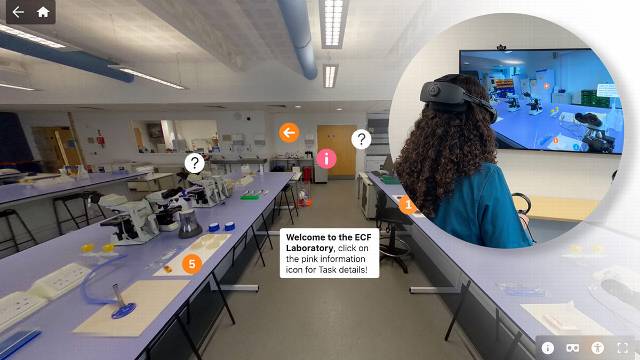
Dr Simon Jeffery, reader in soil ecology, explains what soil health is and why it is of importance to Harper students and the world.
Soil is literally vital to our survival. Globally, more than 99% of the calories that we eat comes from food that has been grown in soil, either directly (crops) or indirectly (livestock)1. As such, soil degradation – the reduction or loss of soil functions – is one of the greatest threats to global civilization2. Several regional civilizations have been caused to wane or collapse over the last few thousand years due to soil degradation. This includes the Maya in Central America, the Anasazi, in North America, and Easter Islanders in, well, Easter Island3.
Soil degradation occurs most commonly due to human impacts such as poor agricultural, forestry, or catchment management practices. Currently, more than 75% of soils globally are classed as “Substantially Degraded”. As a result, crop yields are predicted to decrease by 10% globally, and as much as 50% in some areas, by 20504. This has clear implications for food security, particularly when contrasted against a growing global population, projected to reach 9.7 billion by 2050, up from 7.6 billion currently5.
Soils form a diverse range of habitats and environments and underpin the functioning of aboveground ecosystems. Complex processes take place within soils that are so vital how the world works that there would be no complex aboveground ecosystems, such as the forests and meadows that we enjoy, and the fields of crops on which we all depend were it not for soil. These processes result in our drinking water being cleaned, the amount of flooding reduced, our climate protected, and our food provided. Soil degradation refers to the reduction and breakdown of these complex processes.
Soil health is a concept that is growing in prominence; it tries to help connect people with the importance of soil and the fact that we need to look after it. Simply put, it is the idea that soils have a maximum level of provision of each of the functions that they provide. If we look after our soils, they will remain healthy, and provide all these positive benefits. However, if we do not look after them, they can become sick and degraded; the benefits that they provide can be reduced or lost.
Here at Harper Adams University we offer a range of courses including Agriculture and Environmental Land Management degrees at undergraduate, and Agroecology, Conservation and Forest Protection and Forest Management at postgraduate level. We make sure that the next generation understands the functioning of soils, based on the latest research and insights, to show how they can be managed to maximise soil health. This helps us look after our soils and ensure they remain healthy, to the benefit of us all!
To find out more about our range of undergraduate and postgraduate degrees that matter, join us at our Virtual Open Days on July 22 and 23 to talk to academics and experience Harper life from home. Click here to register to our undergraduate open day or here to sign up for our postgraduate event.
References:
- Pimentel, D. 2017. Biofuels versus Agricultural soils. Encyclopaedia of soil science. CRC Press. Florida.
- Gomiero, T., 2016. Soil degradation, land scarcity and food security: Reviewing a complex challenge.?Sustainability,?8(3), p.281.
- Hillel, D. (2005). Civilization, Role of Soils. Elsevier.
- Scholes, R.J., Montanarella, L., Brainich, E., Barger, N., ten Brink, B., Cantele, M., Erasmus, B., Fisher, J., Gardner, T., Holland, T.G. and Kohler, F., 2018. IPBES (2018): Summary for policymakers of the assessment report on land degradation and restoration. The Intergovernmental Science-Policy Platform on Biodiversity and Ecosystem Services.United Nations.
- United Nations 2019, Population Data: Total Population-Both Sexes, Estimates. United Nations Population Division. Department of Economic and Social Affairs. USA.
 Dr Simon Jeffery
Dr Simon Jeffery
 Blog: Veterinary Medicine students step into immersive 360° laboratory
At Harper & Keele Veterinary School, students are stepping beyond the traditional microbiology bench and into an immersive 360° labo …
Posted
Yesterday
Blog: Veterinary Medicine students step into immersive 360° laboratory
At Harper & Keele Veterinary School, students are stepping beyond the traditional microbiology bench and into an immersive 360° labo …
Posted
Yesterday






